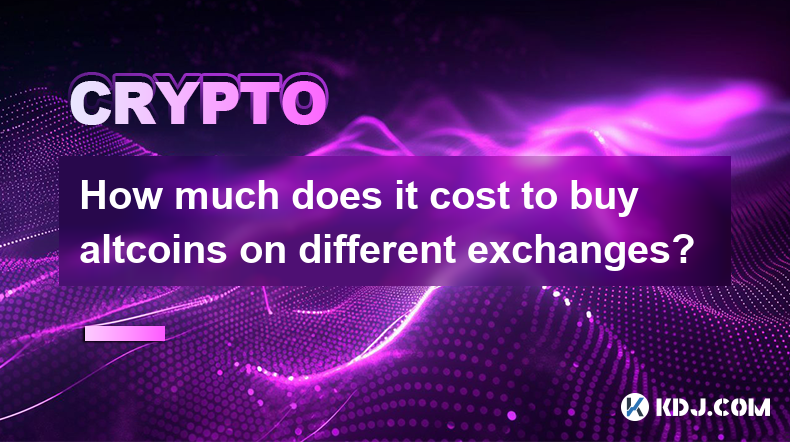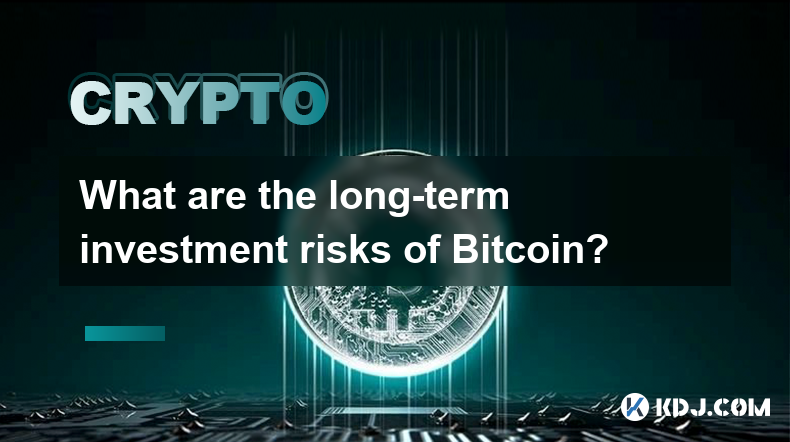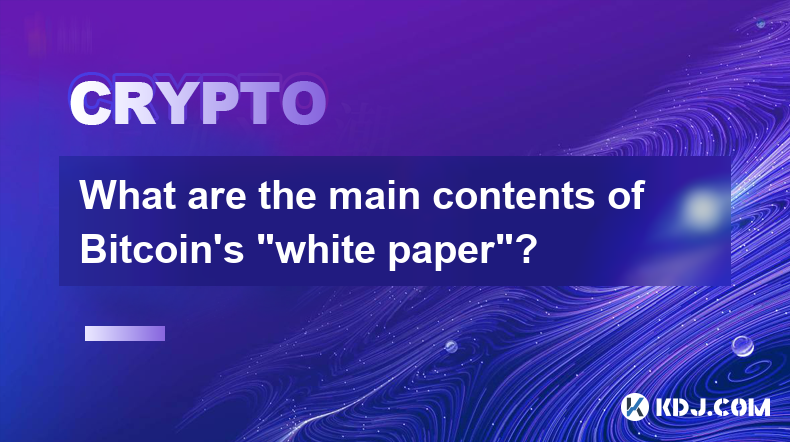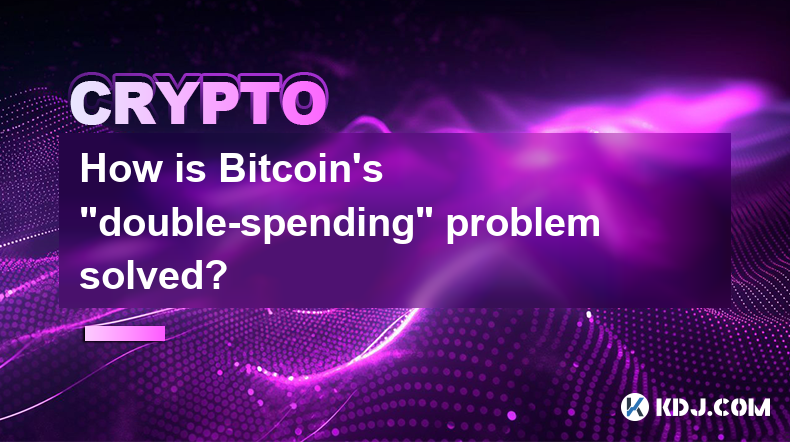-
 Bitcoin
Bitcoin $95,783.5010
-0.87% -
 Ethereum
Ethereum $2,810.2938
1.60% -
 XRP
XRP $2.5541
-1.28% -
 Tether USDt
Tether USDt $1.0003
0.03% -
 BNB
BNB $654.3481
-3.20% -
 Solana
Solana $167.7533
-2.88% -
 USDC
USDC $1.0001
0.01% -
 Dogecoin
Dogecoin $0.2417
-2.14% -
 Cardano
Cardano $0.7655
-1.92% -
 TRON
TRON $0.2444
2.25% -
 Chainlink
Chainlink $17.5560
-1.75% -
 Sui
Sui $3.3302
-2.49% -
 Avalanche
Avalanche $24.5324
-5.76% -
 Stellar
Stellar $0.3301
-2.57% -
 Litecoin
Litecoin $128.1025
0.86% -
 Toncoin
Toncoin $3.7589
1.74% -
 Shiba Inu
Shiba Inu $0.0...01546
-1.06% -
 UNUS SED LEO
UNUS SED LEO $9.7661
0.60% -
 Hedera
Hedera $0.2099
-3.97% -
 MANTRA
MANTRA $8.4259
11.19% -
 Hyperliquid
Hyperliquid $23.5229
-5.15% -
 Polkadot
Polkadot $4.9424
-3.18% -
 Bitcoin Cash
Bitcoin Cash $325.4606
1.11% -
 Bitget Token
Bitget Token $4.9830
1.75% -
 Ethena USDe
Ethena USDe $1.0005
0.09% -
 Uniswap
Uniswap $8.9886
0.00% -
 Dai
Dai $1.0000
0.00% -
 Monero
Monero $233.7701
0.61% -
 NEAR Protocol
NEAR Protocol $3.4321
-2.23% -
 Pepe
Pepe $0.0...09311
-3.17%
How much does it cost to buy altcoins on different exchanges?
When buying altcoins on an exchange, you need to factor in transaction fees, market spread, and the payment method you use to complete the purchase.
Dec 31, 2024 at 04:11 am

Key Points:
- Transaction Fees: Exchanges typically charge transaction fees for buying and selling altcoins. These fees vary depending on the exchange, the altcoin being traded, and the payment method used.
- Market Spread: When buying altcoins, you purchase them at the ask price, which is usually slightly higher than the market price. Similarly, when selling altcoins, you receive the bid price, which is slightly lower than the market price. This spread represents the difference between the prices at which buyers are willing to buy and sellers are willing to sell.
- Payment Methods: Different exchanges support various payment methods, including fiat currencies, credit/debit cards, and other cryptocurrencies. Some methods may incur additional fees, such as processing fees for card payments or network fees for cryptocurrency transfers.
- Trading Volume: Exchanges with higher trading volumes typically offer lower transaction fees and tighter market spreads. This is because they have a larger pool of buyers and sellers, reducing the gap between the ask and bid prices.
Detailed Guide to Buying Altcoins on Different Exchanges:
1. Research and Identify Exchanges:
- Explore reputable cryptocurrency exchanges and compare their fees, trading volumes, and supported payment methods. Consider factors such as security, customer support, and user interface.
2. Create an Account and Fund It:
- Register with the chosen exchange and complete the required verification process. Deposit funds into your account using a supported payment method.
3. Find the Altcoin You Want:
- Search for the altcoin you wish to buy using the exchange's search bar or trading platform.
4. Place a Buy Order:
- Navigate to the altcoin's trading page and enter the amount you want to buy. Select the market order option to buy at the current market price or limit order option to specify a specific price.
5. Review and Confirm:
- Review the transaction details, including fees, market spread, and total cost. Once satisfied, confirm the order.
6. Receive the Altcoins:
- Upon order completion, the altcoins will be deposited into your exchange wallet. You can withdraw them to an external wallet or continue trading.
FAQs:
What is the average cost to buy altcoins on an exchange?
Transaction fees vary depending on the exchange and altcoin. Typically, fees range from 0.1% to 0.5% of the transaction value.
Which exchanges have the lowest fees for buying altcoins?
Binance, Coinbase, and Kraken offer competitive transaction fees for altcoin trades.
What is the impact of market spread when buying altcoins?
Market spread represents the difference between the ask and bid prices. Wider spreads result in higher buy/sell prices. Exchanges with high trading volumes tend to have tighter spreads.
Can I buy altcoins with a credit card?
Yes, most major exchanges support credit card purchases. However, credit card payments may incur processing fees.
What is a good strategy for buying altcoins on an exchange?
- Research and identify promising altcoins with strong fundamentals.
- Set realistic expectations and avoid chasing short-term gains.
- Consider market conditions, trading volume, and coin liquidity before making decisions.
- Invest only what you can afford to lose and never allocate more than 10% of your portfolio to any single altcoin.
- Monitor your investments regularly and adjust your strategies as needed based on market trends.
Disclaimer:info@kdj.com
The information provided is not trading advice. kdj.com does not assume any responsibility for any investments made based on the information provided in this article. Cryptocurrencies are highly volatile and it is highly recommended that you invest with caution after thorough research!
If you believe that the content used on this website infringes your copyright, please contact us immediately (info@kdj.com) and we will delete it promptly.
- Is Dogecoin Ready to Revolutionize the Crypto Market? A Deep Dive into Its Future Potential
- 2025-02-24 03:30:27
- The Best Crypto to Buy Before Bitcoin's Halving Shakes Things Up
- 2025-02-24 03:20:26
- The Search for Top Defi Projects Prime for a Breakout is Dominating Headlines
- 2025-02-24 03:20:26
- Cryptocurrency Explosion: What’s Next for Bitcoin, Ethereum, and Ripple?
- 2025-02-24 03:11:35
- What Lies Ahead for XRP in ... [+] 2025?
- 2025-02-24 03:05:26
- Solaxy, the First Solana Layer 2 Solution, Raises $23M in Presale Targeting Blockchain Scaling and Algorithmic Trading
- 2025-02-24 03:05:26
Related knowledge

What are the long-term investment risks of Bitcoin?
Feb 22,2025 at 05:30pm
Key PointsVolatility and price fluctuationsRegulatory uncertaintySecurity risksCompetition from altcoinsMarket manipulation and scamsTransaction feesEnvironmental concernsLong-Term Investment Risks of BitcoinVolatility and Price FluctuationsBitcoin's high volatility is a double-edged sword. While it has the potential to generate substantial returns, it ...

What are the main contents of Bitcoin's "white paper"?
Feb 21,2025 at 04:36am
Key Points:Understanding Bitcoin's Genesis: The White Paper's IntroductionA Decentralized Digital Currency: Bitcoin's Core ConceptBlockchain Technology: The Foundation of Bitcoin's Immutable LedgerProof-of-Work: Securing Bitcoin's NetworkThe Design of Bitcoin's Currency: Issuance, Scarcity, and DivisibilityBitcoin's Potential Applications and Future Pro...

How does Bitcoin's distributed ledger ensure consistency?
Feb 22,2025 at 10:06pm
Key Points:Bitcoin employs a distributed ledger, also known as a blockchain, to maintain a tamper-proof and consistent record of transactions.The blockchain is a decentralized network of computers that collectively validate and store transaction data.Bitcoin's distributed ledger ensures consistency through consensus mechanisms and cryptographic algorith...

What does the Cryptographic Fundamentals of Bitcoin consist of?
Feb 21,2025 at 12:06pm
Key PointsUnderstanding the cryptographic algorithms used in BitcoinFamiliarization with the Bitcoin blockchain and its underlying mechanicsExamination of the security measures that protect Bitcoin from attackAnalysis of the decentralized nature of Bitcoin and its implicationsDiscussion of the scalability and transaction fee issues associated with Bitco...

What is Bitcoin's relationship with blockchain technology?
Feb 22,2025 at 07:00pm
Bitcoin's Intertwined Relationship with Blockchain TechnologyKey Points:Definition of blockchain technology and its decentralized natureBitcoin's utilization of blockchain for secure and immutable transactionsThe role of blockchain in verifying and confirming transactionsEvolution of blockchain technology beyond Bitcoin's cryptocurrency applicationsUnde...

How is Bitcoin's "double-spending" problem solved?
Feb 23,2025 at 02:54am
Key Points:The double-spending problem refers to the potential for a digital currency transaction to be reversed, allowing the same funds to be spent multiple times.Bitcoin solves this problem through the use of a decentralized blockchain, a public ledger that records all transactions permanently and securely.The immutability and transparency of the blo...

What are the long-term investment risks of Bitcoin?
Feb 22,2025 at 05:30pm
Key PointsVolatility and price fluctuationsRegulatory uncertaintySecurity risksCompetition from altcoinsMarket manipulation and scamsTransaction feesEnvironmental concernsLong-Term Investment Risks of BitcoinVolatility and Price FluctuationsBitcoin's high volatility is a double-edged sword. While it has the potential to generate substantial returns, it ...

What are the main contents of Bitcoin's "white paper"?
Feb 21,2025 at 04:36am
Key Points:Understanding Bitcoin's Genesis: The White Paper's IntroductionA Decentralized Digital Currency: Bitcoin's Core ConceptBlockchain Technology: The Foundation of Bitcoin's Immutable LedgerProof-of-Work: Securing Bitcoin's NetworkThe Design of Bitcoin's Currency: Issuance, Scarcity, and DivisibilityBitcoin's Potential Applications and Future Pro...

How does Bitcoin's distributed ledger ensure consistency?
Feb 22,2025 at 10:06pm
Key Points:Bitcoin employs a distributed ledger, also known as a blockchain, to maintain a tamper-proof and consistent record of transactions.The blockchain is a decentralized network of computers that collectively validate and store transaction data.Bitcoin's distributed ledger ensures consistency through consensus mechanisms and cryptographic algorith...

What does the Cryptographic Fundamentals of Bitcoin consist of?
Feb 21,2025 at 12:06pm
Key PointsUnderstanding the cryptographic algorithms used in BitcoinFamiliarization with the Bitcoin blockchain and its underlying mechanicsExamination of the security measures that protect Bitcoin from attackAnalysis of the decentralized nature of Bitcoin and its implicationsDiscussion of the scalability and transaction fee issues associated with Bitco...

What is Bitcoin's relationship with blockchain technology?
Feb 22,2025 at 07:00pm
Bitcoin's Intertwined Relationship with Blockchain TechnologyKey Points:Definition of blockchain technology and its decentralized natureBitcoin's utilization of blockchain for secure and immutable transactionsThe role of blockchain in verifying and confirming transactionsEvolution of blockchain technology beyond Bitcoin's cryptocurrency applicationsUnde...

How is Bitcoin's "double-spending" problem solved?
Feb 23,2025 at 02:54am
Key Points:The double-spending problem refers to the potential for a digital currency transaction to be reversed, allowing the same funds to be spent multiple times.Bitcoin solves this problem through the use of a decentralized blockchain, a public ledger that records all transactions permanently and securely.The immutability and transparency of the blo...
See all articles




















































































